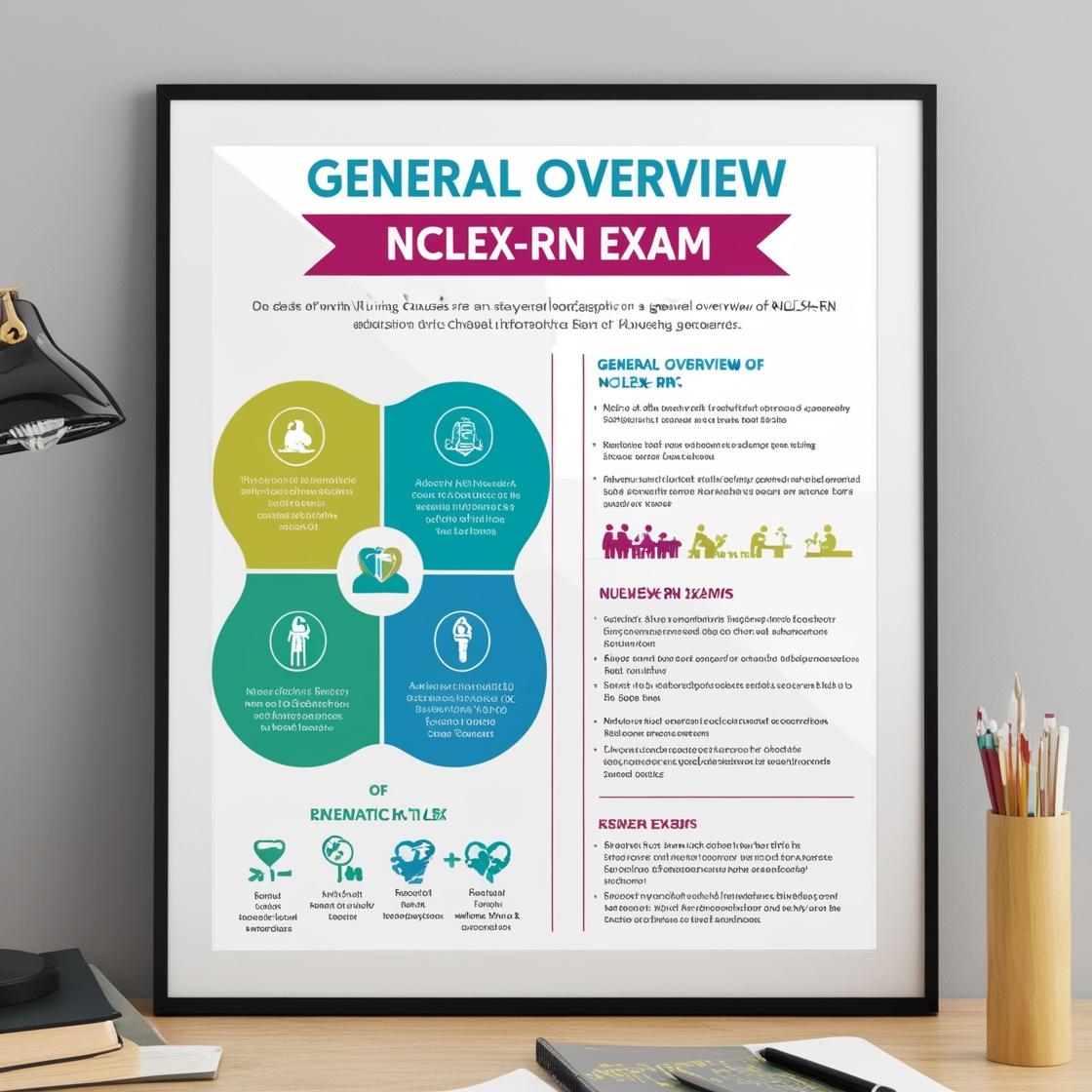NCLEX-RN
Exam Cram NCLEX RN Practice Questions
1. The healthcare provider calculates the IV flow rate for a patient receiving lactated Ringer's solution. The patient needs to receive 2000mL of Lactated Ringer's over 36 hours. The IV infusion set has a drop factor of 15 drops per milliliter. How many drops per minute should the healthcare provider set the IV to deliver?
- A. 8
- B. 10
- C. 14
- D. 18
Correct answer: C
Rationale: To determine the drops per minute, we use the formula Drops Per Minute = (Milliliters x Drop Factor) / Time in Minutes. In this case, Drops Per Minute = (2000mL x 15 drops/mL) / (36 hours x 60 minutes/hour) = 30000 / 2160 = 13.89 (approximately 14). Therefore, the correct answer is 14 drops per minute. Choice A (8), Choice B (10), and Choice D (18) are incorrect as they do not correctly calculate the drops per minute based on the given information.
2. The nurse is assigned to care for a child who is scheduled for an appendectomy. Select the prescriptions that the nurse anticipates will be prescribed. Select one that doesn't apply.
- A. Initiate an IV line.
- B. Maintain an NPO status.
- C. Administer a Fleet enema.
- D. Administer intravenous antibiotics.
Correct answer: C
Rationale: For a child scheduled for an appendectomy, the administration of a Fleet enema is not typically required. An IV line is often initiated for fluid and medication administration, maintaining NPO status is necessary to prevent aspiration during surgery, and administering intravenous antibiotics may be part of the preoperative regimen. Therefore, the correct choice that does not apply in this case is administering a Fleet enema.
3. Which of the following is NOT a warning sign that compensatory mechanisms in a patient in shock are failing?
- A. Increasing heart rate above normal for the patient's age.
- B. Absent peripheral pulses
- C. Decreasing level of consciousness
- D. Increasing blood pressure
Correct answer: D
Rationale: In a patient in shock, increasing blood pressure is not a sign that compensatory mechanisms are failing. As shock progresses and compensatory mechanisms fail, systolic blood pressure will decrease, leading to hypotension, which is a late and ominous sign in these patients. Therefore, choices A, B, and C are warning signs of failing compensatory mechanisms in shock: an increasing heart rate above normal, absent peripheral pulses, and decreasing level of consciousness, respectively. An increasing blood pressure is not indicative of compensatory failure in shock; instead, it may be a sign of compensatory mechanisms still trying to maintain perfusion pressure.
4. A patient has come into the emergency room after an injury at work in which their upper body was pinned between two pieces of equipment. The nurse notes bruising in the upper abdomen and chest. The patient is complaining of sharp chest pain, having difficulty breathing, and their trachea is deviated to the left side. Which of the following conditions are these symptoms most closely associated with?
- A. Left-sided pneumothorax
- B. Pleural effusion
- C. Atelectasis
- D. Right-sided pneumothorax
Correct answer: D
Rationale: The patient is most likely suffering from a right-sided pneumothorax. Symptoms of a pneumothorax include sharp chest pain, difficulties with breathing, decreased vocal fremitus, absent breath sounds, and tracheal shift to the opposite of the affected side. In this case, the patient's trachea is deviated to the left side, indicating a right-sided pneumothorax. Choices A, B, and C can be eliminated as they do not present with the specific symptoms described in the scenario. Left-sided pneumothorax would not cause tracheal deviation to the left side. Pleural effusion typically presents with dull chest pain and decreased breath sounds, not sharp chest pain and tracheal deviation. Atelectasis would not cause tracheal deviation and is more associated with lung collapse rather than air accumulation in the pleural space.
5. A child presents to the emergency department with colicky abdominal pain in the lower right quadrant. What disorder is suspected based on these symptoms?
- A. Peritonitis
- B. Appendicitis
- C. Intussusception
- D. Hirschsprung's disease
Correct answer: B
Rationale: The child's presentation of colicky abdominal pain in the lower right quadrant is classic for appendicitis. Appendicitis typically presents with localized pain that starts near the umbilicus and then shifts to the right lower quadrant. Peritonitis, on the other hand, is characterized by diffuse abdominal pain, tenderness, and guarding, usually resulting from organ perforation or intestinal obstruction. Intussusception is associated with acute, severe abdominal pain and currant jelly-like stools due to intestinal telescoping. Hirschsprung's disease, which lacks ganglion cells in the colon, manifests with symptoms like constipation, abdominal distension, and foul-smelling, ribbon-like stools.
Similar Questions

Access More Features
NCLEX RN Basic
$69.99/ 30 days
- 5,000 Questions with answers
- Comprehensive NCLEX coverage
- 30 days access @ $69.99
NCLEX RN Premium
$149.99/ 90 days
- 5,000 Questions with answers
- Comprehensive NCLEX coverage
- 30 days access @ $149.99
